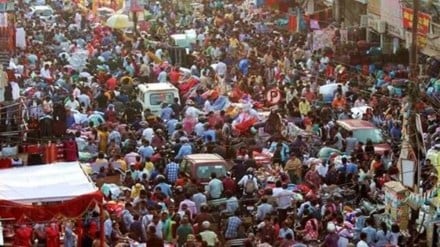India crossing China in population is an opportunity because it will create a large domestic market thanks to the young people who are ready to offer their services and labour to the world, said Manish Sabharwal, vice chairman, TeamLease Services. He also said that economic growth upwards of 7% combined with structural reforms is the best way to reduce our underemployment and raise wages.
In an interview to FE, he, however, stressed that economic growth is important but the shape of the economy matters almost as much as size. “The last decade globally has shown that the best way to reduce poverty is not fiscal or monetary policy but creating high productivity enterprises that create high paying jobs,” he said.
His comments come in the backdrop of the latest report by United Nations Population Fund, which said that India is set to become the most populous country by overtaking China by mid-2023.
Also read: FM Sitharaman asks CBDT to focus on compliance, widening taxpayer base
“Population size is not good or bad per se; what matter is whether your people are productive,” Sabharwal said, adding that at one level India’s population growth rates slowed more organically because we were a democracy and let economic growth, women’s empowerment and education take their natural course. “China enforced a one child policy that means it will lose workers equal to France’s population in the next few years,” he pointed out.
He also noted that the next 25 years will be very different from the last 25 years economically for India if we raise the productivity of our states, cities, firms, sectors and citizens. “There are signs that this is already happening. Obviously, bold and big policy changes can accelerate it even further,” he said.
Also read: States’ capex on track, up 12% in April-Feb: Centre
When asked about the kind of policies required for the economy to create adequate jobs for the growing labour force, Sabharwal said India’s problem is not jobs but (lack of) high-productivity, high- wage formal jobs. “This distinction between jobs and wages is important because if one thinks India’s problem is jobs, one will throw money from helicopters, mandate a three-day work week and take away people shovels and give them spoons to dig with,” he noted. But if one thinks India’s problem is wages, one will pursue formalisation, urbanisation, industrialisation, financialisation and human capital.
